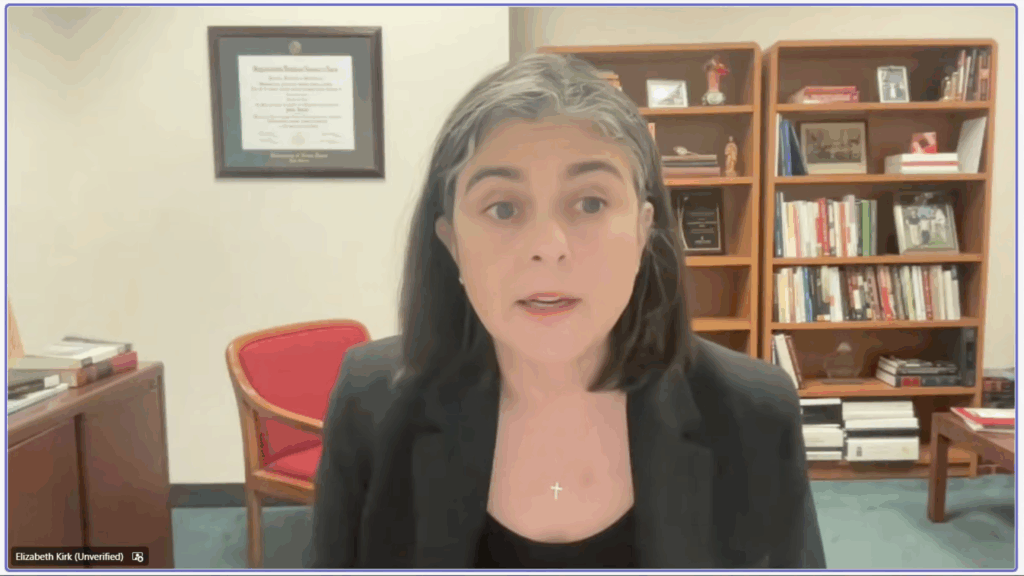Justice Thomas to Supreme Court Justices: Don’t “consult popularity,” rely only on “the Constitution and the laws”
by Thomas M. Messner, J.D.
Last week Justice Clarence Thomas issued a respectful but strong admonition to his colleagues on the U.S. Supreme Court.
Justice Thomas’s admonition comes in his opinion dissenting from the decision of the Court to deny review in Gee v. Planned Parenthood, No. 17-1492, and Andersen v. Planned Parenthood, No. 17-1340.
As the Supreme Court reporter Amy Howe writes at SCOTUSblog.com, the two cases “drew significant attention because they were filed by Planned Parenthood and because of the effect that such lawsuits might have on funding for Planned Parenthood under state Medicaid programs.”
“Planned Parenthood successfully sued the states of Louisiana and Kansas,” Lynde Langdon of WORLD explains, “for dropping the organization as a Medicaid provider after undercover videos from the Center of [sic] Medical Progress showed the abortion giant profiting from the sale of aborted baby body parts.”
Technically, the cases present a question of statutory interpretation, not abortion rights. That question, as stated by Justice Thomas, concerned “whether Medicaid recipients have a private right of action to challenge a State’s determination of ‘qualified’ Medicaid providers under 42 U. S. C. §1396a(a)(23) and Rev. Stat. §1979, 42 U. S. C. §1983.” According to Justice Thomas, “[f]ive Circuits have held that Medicaid recipients have such a right, and one Circuit has held that they do not” and “[t]he last three Circuits to consider the question have themselves been divided.”
“This question,” Justice Thomas writes, “is important and recurring.”
According to Justice Thomas, “Around 70 million Americans are on Medicaid, and the question presented directly affects their rights.” Further, “The question presented also affects the rights of the States, many of which are amici requesting our guidance.”
In addition, Justice Thomas continues, “the disagreement over §1396a(a)(23) implicates fundamental questions about the appropriate framework for determining when a cause of action is available under §1983—an important legal issue independently worthy of this Court’s attention.” Here, Justice Thomas explains that “[t]he division in the lower courts stems, at least in part, from this Court’s own lack of clarity on the issue.” In Justice Thomas’s view, “We created this confusion. We should clear it up.”
“One of . . . [the Supreme] Court’s primary functions is to resolve ‘important matter[s] on which the courts of appeals are ‘in conflict,’” Justice Thomas explains, quoting Supreme Court Rule 10(a).
“So what explains,” in Justice Thomas’s words, “the Court’s refusal to do its job here?”
“I suspect,” Justice Thomas writes, that “[the Court’s refusal to grant review] has something to do with the fact that some respondents in these cases are named ‘Planned Parenthood.’” In Justice Thomas’s view, “That makes the Court’s decision particularly troubling, as the question presented has nothing to do with abortion.”
“It is true,” he writes, “that these particular cases arose after several States alleged that Planned Parenthood affiliates had, among other things, engaged in ‘the illegal sale of fetal organs’ and ‘fraudulent billing practices,’ and thus removed Planned Parenthood as a state Medicaid provider” (quoting the opinion of a lower court judge).
“But these cases are not about abortion rights,” Justice Thomas continues. “They are about private rights of action under the Medicaid Act. Resolving the question presented here would not even affect Planned Parenthood’s ability to challenge the States’ decisions; it concerns only the rights of individual Medicaid patients to bring their own suits.”
At this point Justice Thomas offers an admonition that should serve both as a rallying cry to pro-life activists and a troubling signal about the current appetite at the Supreme Court to take on the abortion issue.
“Some tenuous connection to a politically fraught issue does not justify abdicating our judicial duty,” Justice Thomas writes. “If anything, neutrally applying the law is all the more important when political issues are in the background.”
Justice Thomas then invokes Federalist Number 78 in writing that “[t]he Framers gave us lifetime tenure to promote ‘that independent spirit in the judges which must be essential to the faithful performance’ of the courts’ role as ‘bulwarks of a limited Constitution,’ unaffected by fleeting ‘mischiefs.’”
“We are not ‘to consult popularity,’” Justice Thomas writes, quoting Federalist Number 78 once again, “but instead to rely on ‘nothing . . . but the Constitution and the laws.’”
Justice Thomas’s dissenting opinion was joined by fellow associate justices Samuel A. Alito, Jr. and Neil M. Gorsuch.




























